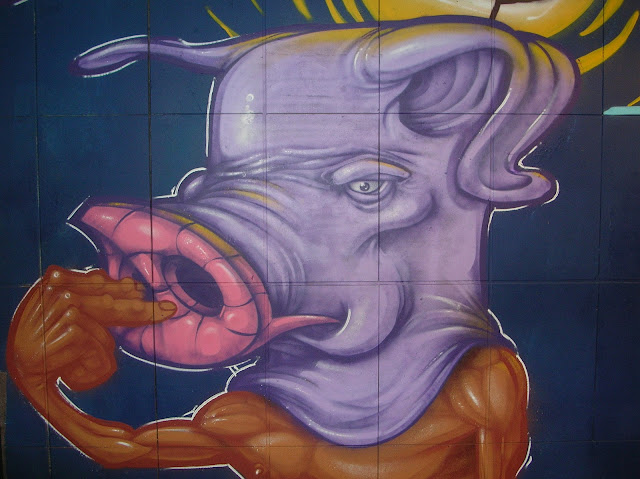Ή ώρα ήταν προχωρημένη μέσα στη νύχτα όταν ακούστηκαν οι κλειδαριές να κλειδώνουν η μια μετά την άλλη. Ένα-ένα, τα παράθυρα του «Φρενοκομείου ΖΩΡΖΗ ΚΑΙ ΤΑΡΣΗΣ ΔΡΟΜΟΚΑΪΤΟΥ» σκοτείνιαζαν. Οι ασθενείς, διασπαρμένοι στις 110 κλίνες του Ιδρύματος, έπεφταν να ξεκουραστούν από της μέρας την φορτωμένη ασυνεννοησία και την αέναη πάλη με την φωτεινή σύγχιση και τη ξένη ρουτίνα στην οποία είχαν τελικά υποκύψει. Που και που, από κάποια κλίνη, ακούγονταν ομιλίες και όχι και τόσο σπανίως, καμμιά κραυγή ερχόταν στα καλά του καθουμένου να διαταράξει την ησυχία.
O Γεώργιος Βιζυηνός, σηκώθηκε από το κρεβάτι του και μέσα στο αμυδρό φως που έμπαινε απ' το παράθυρο βρήκε ένα χαρτί και με μεγάλη δυσκολία έγραψε μερικούς στίχους που του προσφέρθηκαν έτοιμοι. Αισθανόταν μεγάλη θλίψη τις τελευταίες ημέρες. Το ανεκπλήρωτο πάθος του για την μικρή Μπετίνα τον είχε αφήσει μισό άνθρωπο. Ακόμη και η σκέψη του μεταλλείου του στο Σαμάκοβο δεν ήταν πλέον ικανή να τον ανασύρει προς το πάνω. Όλα είχαν αλλάξει. Δεν τον πιστεύανε πια όταν τους μιλούσε. Τον αγνοούσαν όταν τους φώναζε. Κι αυτό το σκοτάδι που κατέκλυζε τα πάντα. Δεν υπήρχαν χρώματα στο σκοτάδι. Όλα τα ρουφούσε το μαύρο. Το μολύβι άφησε καινούργια ίχνη πάνω στο χαρτί...
....
Σὰν μ᾿ ἁρπάχθηκε ἡ χαρὰ
ποὺ ἐχαιρόμουν μιὰ φορὰ
ἔτσι σὲ μίαν ὥρα...
μέσ᾿ σ᾿ αὐτὴν τὴν χώρα
ὅλα ἄλλαξαν τώρα!
Κι᾿ ἀπὸ τότε ποὺ θρηνῶ
τὸ ξανθὸ καὶ γαλανὸ
καὶ οὐράνιο φῶς μου,
μετεβλήθη ἐντός μου
καὶ ὁ ρυθμὸς τοῦ κόσμου.
...
'Εγραψε και μερικούς άλλους στίχους πριν το μολύβι γλυστρήσει από το παγωμένο χέρι του και κυλήσει στο πάτωμα. Όμως αυτοί οι δύο τελευταίοι στίχοι, γραμμένοι από έναν άνθρωπο που είχε από καιρό χαθεί (σύμφωνα με τα ιατρικά δελτία και τους ανθρώπους που τον επισκέφτηκαν στο Άσυλο) είναι συγκλονιστικοί στην διαύγεια τους. Ποιός θα μπορούσε να εκθέσει την διατάραξη της ψυχικής υγείας πιο καίρια και συνάμα πιο ποιητικά; Ο Βιζυηνός διαπιστώνει ότι "μετεβλήθη εντός μου και ο ρυθμός του κόσμου”.
Αυτός ο αποσυντονισμός του εσωτερικού κόσμου του ποιητή με το εξωτερικό περιβάλλον, εκφράζεται σαν μια έλλειψη φωτός που πάλαι ποτέ πήγαζε από το πρόσωπο ενός νεαρού κοριτσιού. Αδυνατεί λοιπόν ο ποιητής να ακολουθήσει τον ρυθμό της εναλλαγής της μέρας με τη νύχτα, τον ανοιξιάτικο ρυθμό που ανασταίνει την φύση, αδυνατεί πλέον να συλλάβει τον παλμό της ζωής, αυτό το κύμα που με κάποιο τρόπο μας σπρώχνει πάντα μπροστά στο χρόνο. Σαν να σταμάτησαν όλα σε μιαν ώρα. Ακίνητος, ο Γεώργιος Βιζυηνός απέμεινε να κοιτά προς το παράθυρο με μάτια που απλώς γυάλιζαν αντανακλώντας το χλωμό φως της σελήνης. Μιας σελήνης που συνέχιζε να πορεύεται στον ουρανό ακολουθώντας τον ρυθμό του κόσμου.
Την επομένη μέρα το πρωί, ο γιατρός αποφάνθηκε ότι ο ασθενής Γεώργιος Σύρμας, γνωστός και ως Βιζυηνός, απεβίωσε σε ηλικία 47 ετών λόγω "προϊούσας γενικής παράλυσης".


















































